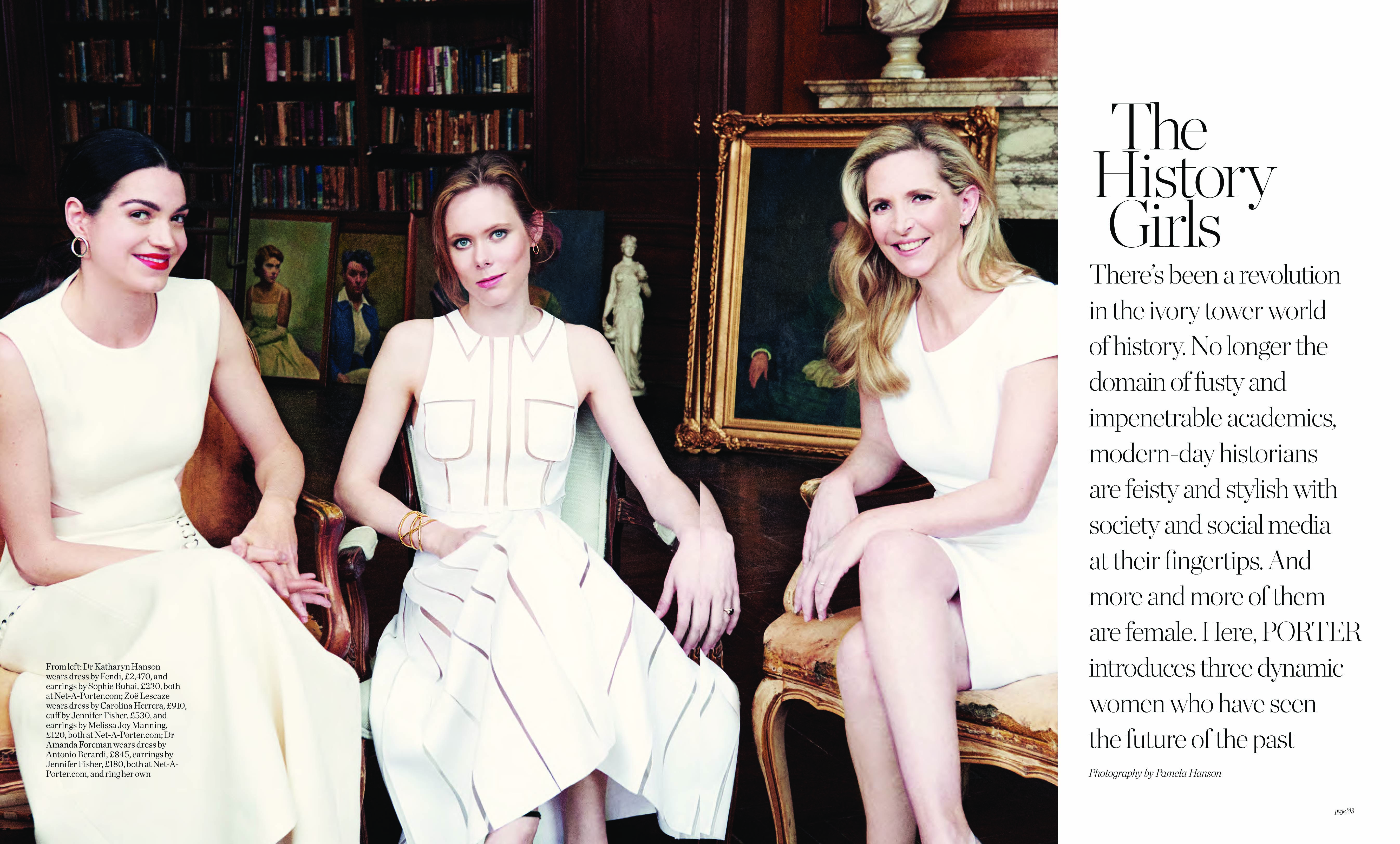In the smash Broadway musical Hamilton, Alexander’s wife Eliza begs him, “Let me be a part of the narrative.” This heartbreaking scene has to do with their marriage and his obsessive work on behalf of the new country he’s helping to build. But, it can also be interpreted as a broader plea. In the American Revolution, as in France’s and later Russia’s, women worked alongside their husbands to attain independence, only to find that when the dust settled, they were back where they started. One patriarchy had simply been replaced by another.

A 6.0-magnitute earthquake in Napa, Calif., on August 24, 2014, damaged buildings and caused injuries. PHOTO: RICK LOOMIS/LOS ANGELES TIMES/GETTY IMAGES
The Big One is looking a little more likely these days. Since the California earthquake of 1857, tectonic plates along the San Andreas Fault are thought to have shifted by as much as 26 feet. Only last year, scientists raised the chances of a quake in California of magnitude 8.0 or greater in the next 30 years to 7% from 4.7%. Unfortunately, for all the sophisticated science behind this prediction, nobody knows whether this means devastation tomorrow or many decades from now. Continue reading…
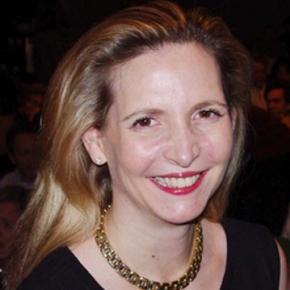 “Powerful, inspiring, and important” states Telegraph, of four-part series by Dr. Amanda ForemanDr. Amanda Foreman leads us on the journey of women through the ages. Dr. Amanda Foreman leads us on the journey of women through the ages.
“Powerful, inspiring, and important” states Telegraph, of four-part series by Dr. Amanda ForemanDr. Amanda Foreman leads us on the journey of women through the ages. Dr. Amanda Foreman leads us on the journey of women through the ages.
It strikes me as odd that The Times described this innovative and fascinating chronicle of women’s history as “ballsy”. Actually, it’s more than that. I imagine a few “old boys” sitting around the newsroom tossing out descriptors for Dr. Amanda Foreman’s study and guffawing when they came up with this one. The irony is not lost. Continue reading…
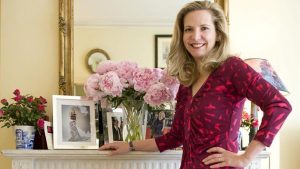
REX/SHUTTERSTOCK
By Sarah Maber
Words of wisdom
- Best advice I was given: “You can do anything, but you can’t do everything”
- Advice I’d give: “Be kind”
- What I wish I’d known: “As a teenager, I wish I’d know that I wouldn’t always feel as lonely as I did at that age”
Born in London, Dr Amanda Foreman, 47, went to several boarding schools, then to the US to study at the Sarah Lawrence College and Columbia University, before returning to the UK for her doctorate at Oxford. Her first book, Georgiana, Duchess of Devonshire, later became a film starring Keira Knightley. A mother of five, Foreman is also a TV documentary-maker. Continue reading…
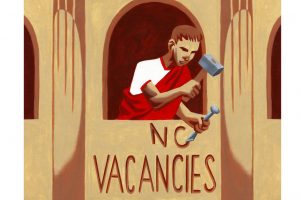
ILLUSTRATION: THOMAS FUCHS
May is a merry month, not least because it heralds the start of tourist season. That’s good news for a visitor-friendly country like the U.S., where tourism has generated nearly $1.6 trillion of annual economic output in recent years.
Orlando, Fla., and New York are the two most popular destinations, though New York claims to have the better-quality hotels. Whether or not that’s true, it’s a sales pitch that has been used for at least 4,000 years. Tourism and its adjunct, the hotel industry, are as old as civilization. When the Sumerian King Shulgi of Ur (circa 2094-2047 B.C.) wanted to boast about his achievements, the list of accomplishments included having improved the roads in and out of Ur and “built there lodging houses…and installed in those places experienced men. Whichever direction one comes from…the traveler who reaches nightfall on the road can seek haven there as in a well-built city.” Continue reading…

Why people still brush up on their Shakespeare. PHOTO: HULTON ARCHIVE/GETTY IMAGES
In David Lodge’s 1975 novel “Changing Places,” a group of university professors play a party game called Humiliation, competing to see who has read the fewest great works of literature. A professor of English literature is in the lead, having declared his ignorance of Longfellow’s “Song of Hiawatha,” when Harold Ringbaum, a man with “a pathological urge to succeed,” declares that he’s never read “Hamlet.” The more he insists, the more the others scoff—until Ringbaum angrily swears a solemn oath to the fact, by which time everyone is stone cold sober with embarrassment.
Ringbaum’s faux pas neatly sums up Shakespeare’s towering presence in modern culture—underlined by the tempest of celebrations marking the 400th anniversary of the Bard’s death, which falls on Saturday. His reputation exists on a plane separate from other writers. With apologies to a speech from “Richard II,” Shakespeare himself has become a precious stone set in a silver sea of words.
Yet over the centuries, a surprising roster of famous writers and celebrated personages has picked quarrels with the Man from Stratford. Though complaints about the Bard have run the gamut from the moral to the artistic, one type is almost unique to him. I call it WAMS, or the What-About-Me Syndrome.
Among the first to suffer its ravages was Shakespeare’s friend, fellow dramatist and eventual British poet laureate Continue reading…
BY LINDA KINSTLER
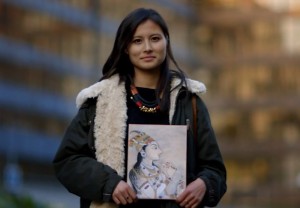
The Ascent of Woman
Enheduanna. Hatshepsut. Empress Wu. Murasaki Shikibu. These ancient women were the first feminist trailblazers, yet they’ve been largely expunged from the historical record.
Enheduanna, daughter of Sargon the Great of Sumer, became the world’s first recorded author in the third millennium BCE. Hatshepsut ruled the Kingdom of Egypt for 20 years, adopting the full regalia of a male king — beard included — before her successor had all signs of her reign erased. Empress Wu, also known as Wu Zetian, united the Chinese empire and reigned as sole monarch for fifteen years before her successors also tried to obliterate her achievements. Murasaki Shikibu wrote the world’s first novel, the Tale of Genji, between 1001-1010 AD. Her real name and personal details remain largely unknown.
These influential women are just a few of the female iconoclasts featured in The Ascent of Woman, Dr. Amanda Foreman’s four-part BBC documentary that premiered to U.S. viewers on Netflix earlier this month. The series aims to “retell the story of civilization with women and men side by side for the first time,” as Foreman declares in the introduction. Reinscribing women into their rightful places in the human story, the documentary corrects the erasures of history’s male heirs. Continue reading…

‘The Ascent of Woman’
“In this series, I want to retell the story of civilization with men and women side by side for the first time.”
That’s one of the opening lines of Amanda Foreman’s BBC series, The Ascent of Woman. The series, which is now on Netflix, focuses on inserting women back into history. The four-part docu-series covers women’s role in everything from ancient civilization to modern day, making this the perfect crash course on feminism. So if you’ve even wondered about feminism and female oppression pre-Judith Butler but are too lazy to actually do any research, you now have a streaming option. Continue reading…
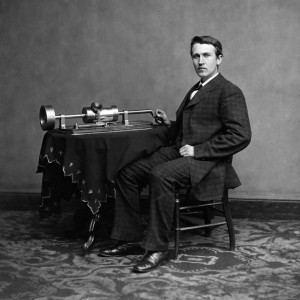
Thomas Edison, circa 1870s, with his phonograph PHOTO: EVERETT COLLECTION
It’s been a difficult time for the high-profile medical startup Theranos. For months, controversies have shadowed the linchpin Edison blood-testing device that the Palo Alto, Calif., company has developed. The method uses a few drops of blood, obtained by a finger-stick, instead of the usual multiple vials.
The fate of the Edison device, named after the inventor, remains unclear. But the story of Thomas Edison himself offers some hope. Not all troubled products remain troubled.
In 1875, the 28-year-old Edison had already obtained almost 100 patents without having invented something truly new. He thought he had the answer in the electric pen. Edison wanted to take the tedium out of copy-making by designing a motorized stylus that would act like a kind of stencil, able to punch words through a stack of papers up to 100 pages thick. Continue reading…






